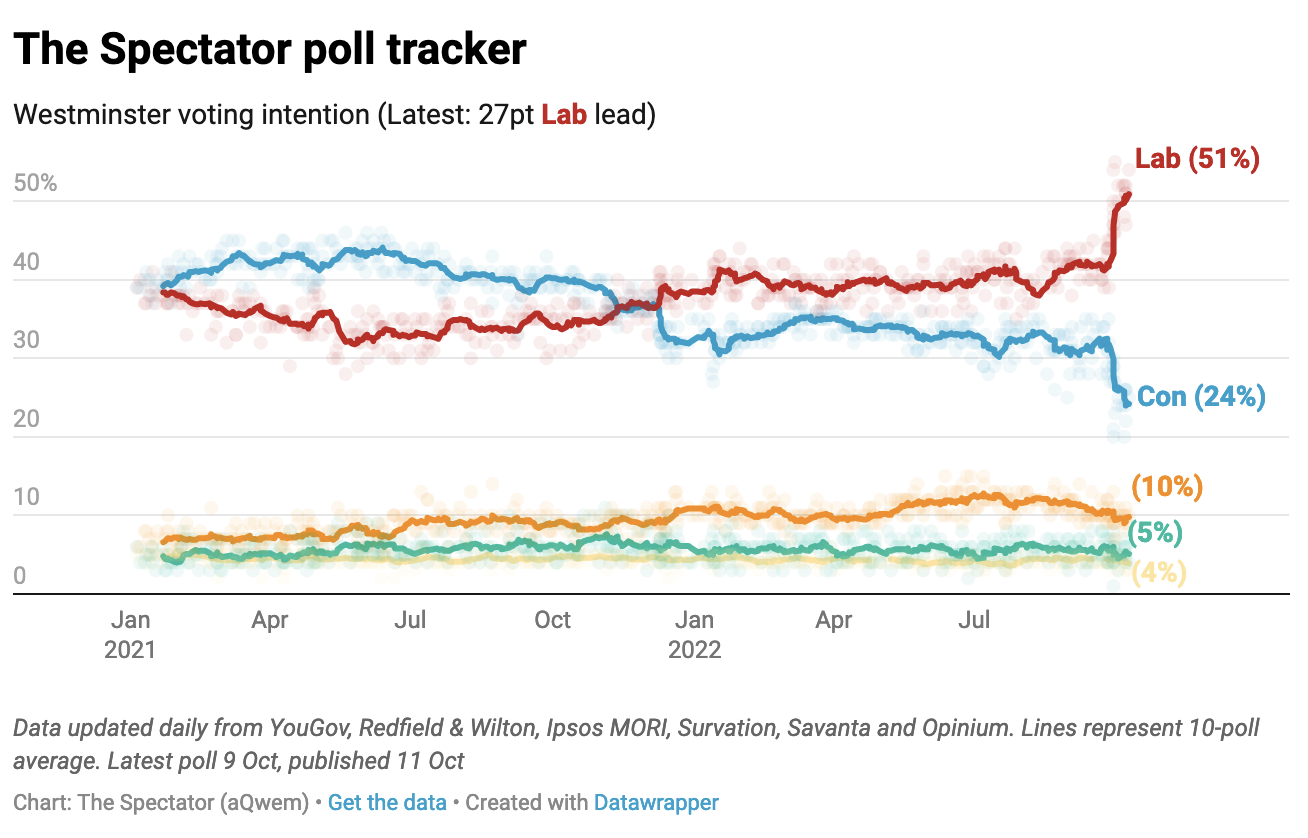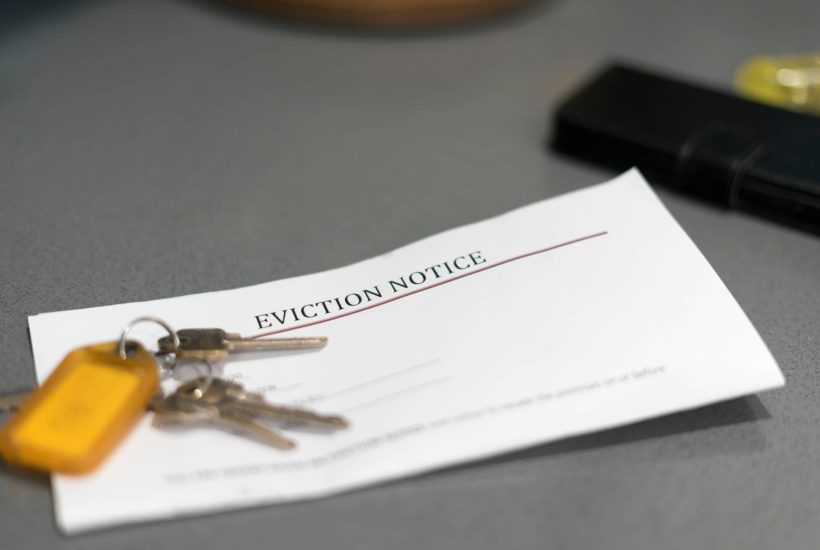How many U-turns can a government perform before it starts spinning out of control? Liz Truss is reportedly considering yet another change of heart over existing policy: this time over plans to end no-fault evictions.
In the month or so Truss has been Prime Minister, she’s U-turned on a key Treasury appointment and scrapping the 45p rate of tax. One source told the Times the eviction policy was not considered a priority by the government and would be delayed; another said it would be scrapped entirely. Asked about today’s reports, a government housing spokesman said: ‘Everyone deserves to live in a safe and secure home. A fair deal for renters remains a priority, and we are carefully considering our next steps for the rental market.’
The banning of Section 21 notices – which give landlords the power to ask private tenants to leave their property within two months without having to provide a reason, often called ‘no-fault evictions’ – has been mentioned in three Queen’s speeches and was raised under Theresa May in spring 2019. Truss may not have introduced this commitment, but she maintains that her mandate for government is predicated on the majority won by Boris Johnson. And, in the three years that scrapping Section 21 notices has been on successive government agendas, there have been record numbers of no-fault evictions, with estimates from April putting the number at around 200,000 – one every seven minutes.
At a panel hosted by housing charity Shelter at Tory conference last week, Michael Gove was firm about his desire to see Section 21 notices scrapped by this government. He said the policy had been a commitment outlined in the 2019 Conservative manifesto ‘at Boris Johnson’s explicit insistence’ and that ‘we’ve got to make sure that manifesto commitment is honoured’. It is interesting to note that Gove was one of the architects of the U-turn on the 45p rate of tax after publicly voicing his disdain for the policy, just as Tory conference was beginning. The U-turn from the government came the next morning.
But the move – which will prove wildly unpopular with Britain’s 11 million private renters – might have a wider effect than perhaps Truss realises. Recent polling has showed a ‘Rent Wall’ of voters in 38 constituencies, mainly in the south-east, who have indicated housing as a top priority in deciding which party will get their vote at the next general election. One in three 2019 Tory voters who rent privately – around 400,000 people – now plan to vote for another party, based on what they perceive as the Conservatives’ lack of attention to the housing crisis. Half of the electorate – around 15 million voters – say housing policies will influence the party that will get their vote at the next general election. These are not insignificant numbers: the Tories would do well to consider the needs of renters if they are to turn their electoral fortunes around.

Truss is said to be considering keeping Section 21 notices in place because getting rid of them does nothing to foster economic growth – it doesn’t fit her ‘growth or bust’ approach to government. But this comes just days after reports emerged of the government’s so-called ‘Bonk for Britain’ plan, under which women would be given tax breaks for having children to boost the labour market. The stances seem at odds: one in four families with children rents. This policy muddle suggests a deep misunderstanding of the precarious living situations of many women at the age where they are starting to think about having children. A quarter of millennials have moved house ten or more times since leaving home; a further quarter expect to move another five times before finding their permanent residence. Not exactly an ideal position in which to raise a child.
No government wants its legacy to be defined by presiding over higher rates of homelessness – especially during a cost-of-living crisis. But if Truss refuses to abolish no-fault evictions, she could find herself trying to explain a worrying rise in the number of renters facing a winter on the streets.
Got something to add? Join the discussion and comment below.
Get 10 issues for just $10
Subscribe to The Spectator Australia today for the next 10 magazine issues, plus full online access, for just $10.



















Comments
Don't miss out
Join the conversation with other Spectator Australia readers. Subscribe to leave a comment.
SUBSCRIBEAlready a subscriber? Log in